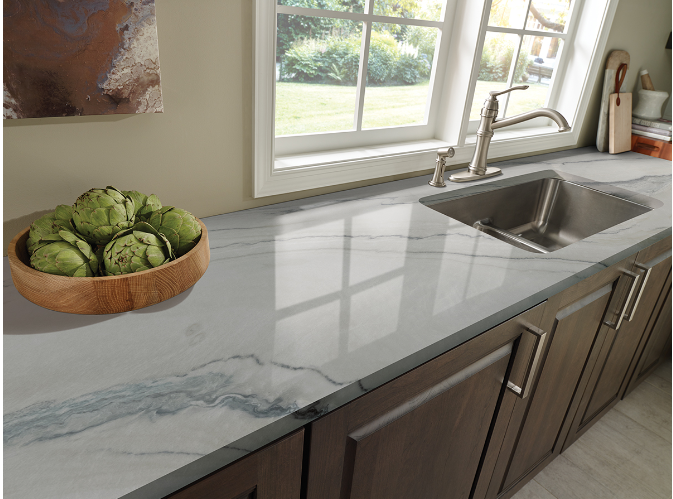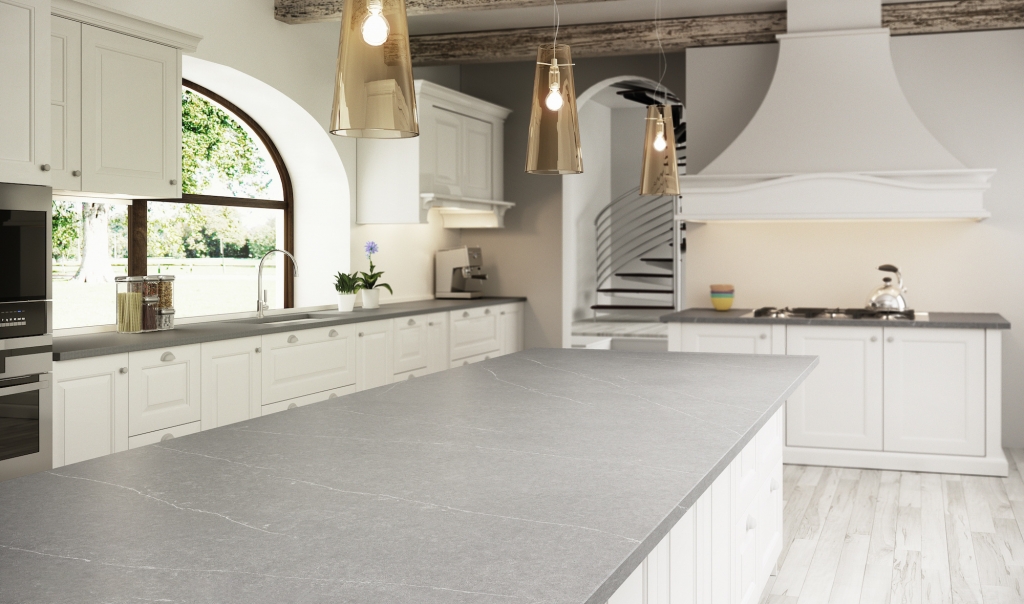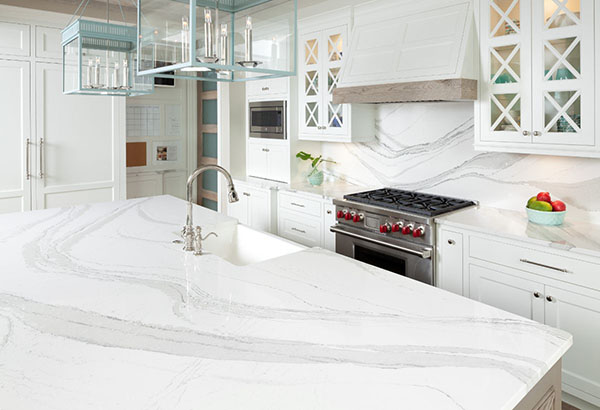Wait, there’s a difference between quartz and quartzite you ask? But why are the names so similar?
This may be the number one question we receive from clients when looking at the beautiful options for countertops in our slab yard. Yes, the names are similar but these fabulous stones have very different qualities. From their humble beginnings to their upkeep.
So close, yet so far.
Right away, the first thing you need to know is quartz is a man-made material, while quartzite is a natural stone. Didn’t see that coming did you? Let’s dive in to the extreme differences and for your reading pleasure, we will throw in maintenance tips to boot.

Photo: MSI Surfaces FANTASY MACAUBAS QUARTZITE
Quartzite
As we said, quartzite is a natural stone. It is a metamorphic rock that originated as sandstone. Already scratching your head? It would help to know that metamorphic rocks are rocks that have been changed by intense heat and/or pressure over time. This transforms the rocks into more compact and denser rocks. New minerals are created by reactions with fluids that may enter the rocks. The extreme pressure and heat does not melt the rocks, but does fold, squish and smear it out. It is extracted from quarries and formed into finished slabs. A lot of quartzite has gray and white swirls or veining. This combination has become extremely popular in kitchens and bathrooms especially with the help of HGTV’s fixer upper mega couple Chip and Joanna Gaines. Quartzite has been compared to granite due to it’s durability and hardness.
Those seeking a natural, one of a kind look with plenty of movement, quartzite may be the perfect selection for your home or business.
Maintenance: Quartzite is a fairly hard stone, but like all natural stones it must be sealed to prevent stains from coffee, wine or citrus juices.

Photo: Silestone-Kitchen-Eternal-Serena
Quartz
This highly durable stone is man made and consists of mostly of crushed up quartz, granite, marble with the remainder being composed of resins, polymers, glass and difference types of pigments. All of this mixed together and held together with binders gives you a quartz countertop with the look of stone. The process forms a very hard surface varying in appearance due to how the quartz is ground: finely ground quartz produces a smooth finished look, while coarsely ground quartz appears flecked or speckled. The pigments are used to mimic colors and movement found in natural quartzite. Quartz countertops can include more or less quantities of quartz but no solid quartz is included.
Quartz is hugely popular and has become the most sought after kitchen and bathroom countertop materials to date.
Maintenance: Because of it’s durability and being non porous, means little maintenance and no sealing. It is stain and crack resistant, easy to clean with mild soap and water and a soft cloth.
We hope this sums up the quartz vs. quartzite confusion and luckily for you, we have both materials in assorted colors and styles waiting for you at our showroom and slab yard. Feel free to call or stop by anytime.

